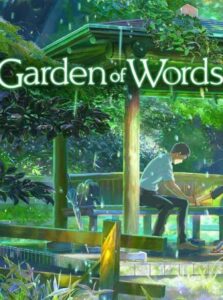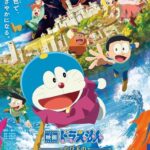Only Yesterday (Omoide Poro Poro) is a beautifully reflective animated film from Studio Ghibli, directed by Isao Takahata. Released in 1991, this coming-of-age drama takes a different approach from the usual fantasy-filled Ghibli films, focusing instead on real-life emotions, personal growth, and nostalgia. The story follows Taeko Okajima, a 27-year-old woman reflecting on her childhood as she visits the countryside, exploring how the past shapes who we become.
Movie Details
| Title | Only Yesterday (Omoide Poro Poro) |
|---|---|
| Director | Isao Takahata |
| Studio | Studio Ghibli |
| Release Date | July 20, 1991 (Japan) |
| Runtime | 118 minutes |
| Genre | Drama, Slice of Life, Romance |
| Language | Japanese (with multiple dubbed versions) |
| IMDb Rating | 7.6/10 |
| Number of Reviews | Over 40,000 user reviews |
| IMDb Link | IMDb Page |
A Trip to the Countryside
Taeko Okajima is a 27-year-old woman living in Tokyo, working a steady job in an office. Though her life seems stable, she feels disconnected, as if something is missing. When she gets an opportunity to take a vacation to the countryside, she eagerly accepts. Unlike the fast-paced city life, the countryside is calm, filled with nature, warmth, and hard work on farms.
As she rides the train, memories of her childhood begin to surface—moments from when she was a 10-year-old girl, struggling with school, family expectations, and the simple joys of growing up. These memories come and go, blending seamlessly with the present, showing how deeply the past lingers within us.
Memories of a 10-Year-Old Girl
Throughout the film, Taeko’s past and present interweave, revealing key moments that shaped her life. She remembers how, as a child, she longed to be different from her strict and conventional family. Her first experience with love, her struggles with math, her excitement over eating fresh pineapple for the first time—each memory carries a deep emotional weight.
One of the most poignant memories is about her father’s strict nature. When she was a child, she accidentally upset him, and though he didn’t yell, his quiet disapproval stayed with her for years. It is these small, personal moments that make the film feel incredibly real and relatable.
A New Perspective on Life
As Taeko spends more time in the countryside, she begins to see life from a different perspective. She meets Toshio, a warm and kind-hearted farmer who is passionate about his simple way of living. His deep love for agriculture, nature, and traditional Japanese culture fascinates Taeko. Through their conversations, she starts to question whether she is truly happy with her city life.
Toshio gently encourages her to embrace who she really is, rather than being bound by societal expectations. For the first time in years, she feels truly free.
Making a Life-Changing Decision
By the end of the film, Taeko is faced with a life-changing decision—should she return to Tokyo, where she has a secure job and a familiar routine, or stay in the countryside, where she has found a new sense of belonging?
In a heartwarming and emotional climax, she makes her choice, symbolized beautifully by a scene where her childhood self walks alongside her. It is a moment of self-acceptance and growth, proving that we never truly leave behind our younger selves—they stay with us, guiding us toward our true happiness.
What Only Yesterday Teaches Us
This film explores universal themes that resonate with many:
- The Power of Nostalgia – Our past experiences, no matter how small, shape who we become. The film beautifully captures the feeling of looking back at childhood with both joy and sadness.
- The Search for True Happiness – Taeko’s journey teaches us that happiness is not always found in what society expects of us, but in what truly makes us feel alive.
- Embracing Change – Sometimes, stepping away from routine and embracing the unknown leads to the most fulfilling discoveries.
My Honest Review on Only Yesterday
Unlike most Studio Ghibli films filled with fantasy and adventure, Only Yesterday offers a quiet, thoughtful, and deeply emotional experience. The animation, with its soft watercolors and realistic facial expressions, brings every memory to life with a warmth that feels almost tangible.
The soundtrack, featuring gentle and nostalgic melodies, perfectly complements the film’s themes. Every frame is filled with subtle yet powerful emotions, making it one of Ghibli’s most underrated masterpieces.
If you love thought-provoking films about life, memory, and self-discovery, this is a must-watch. It is a story that reminds us to cherish our past, embrace our present, and move forward with hope.
FAQ – Only Yesterday
1. Is Only Yesterday based on a true story?
No, but it is based on a manga of the same name by Hotaru Okamoto and Yuko Tone, which was inspired by real-life childhood memories.
2. Why does Taeko keep remembering her childhood?
Her memories surface because she is at a turning point in her life, where she is questioning whether she is truly happy with her current path.
3. What does the ending mean?
The ending symbolizes Taeko’s acceptance of her true self. Her decision to stay in the countryside represents her choice to follow her heart rather than conform to societal expectations.
4. Why is Only Yesterday different from other Studio Ghibli films?
Unlike Ghibli’s usual fantasy-filled stories, this film focuses on real-life emotions and personal growth, making it one of their most mature and introspective works.












